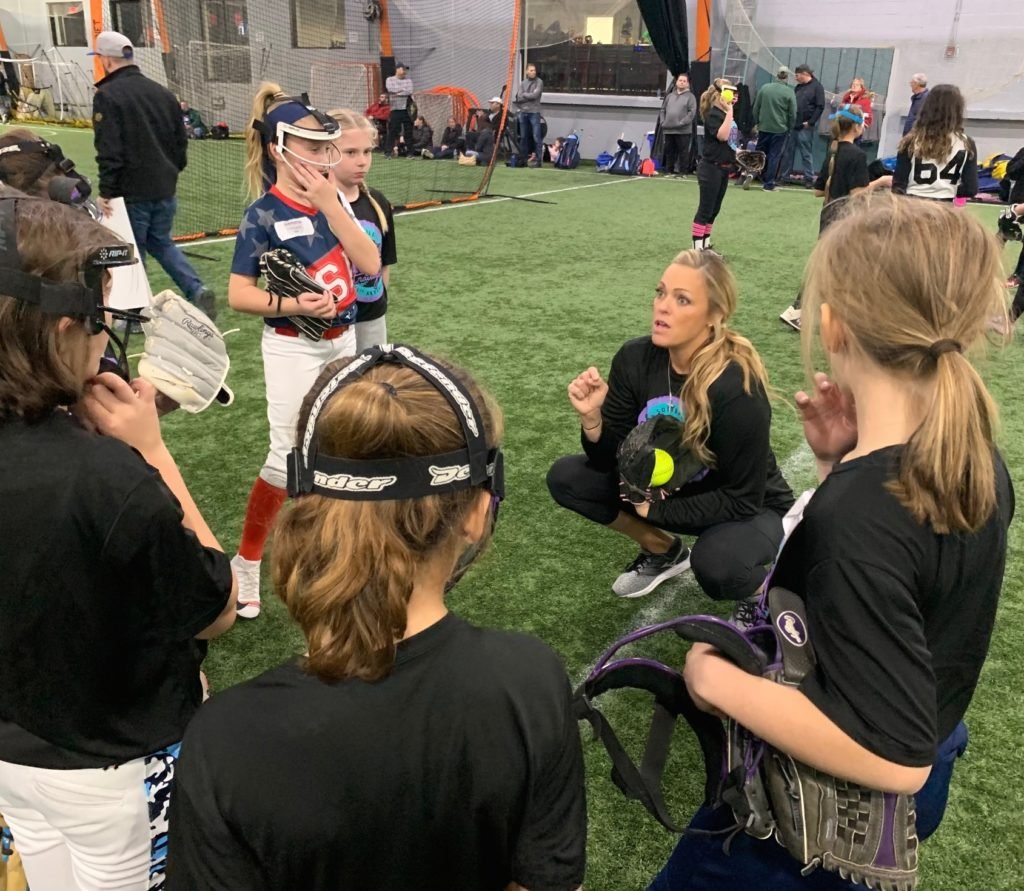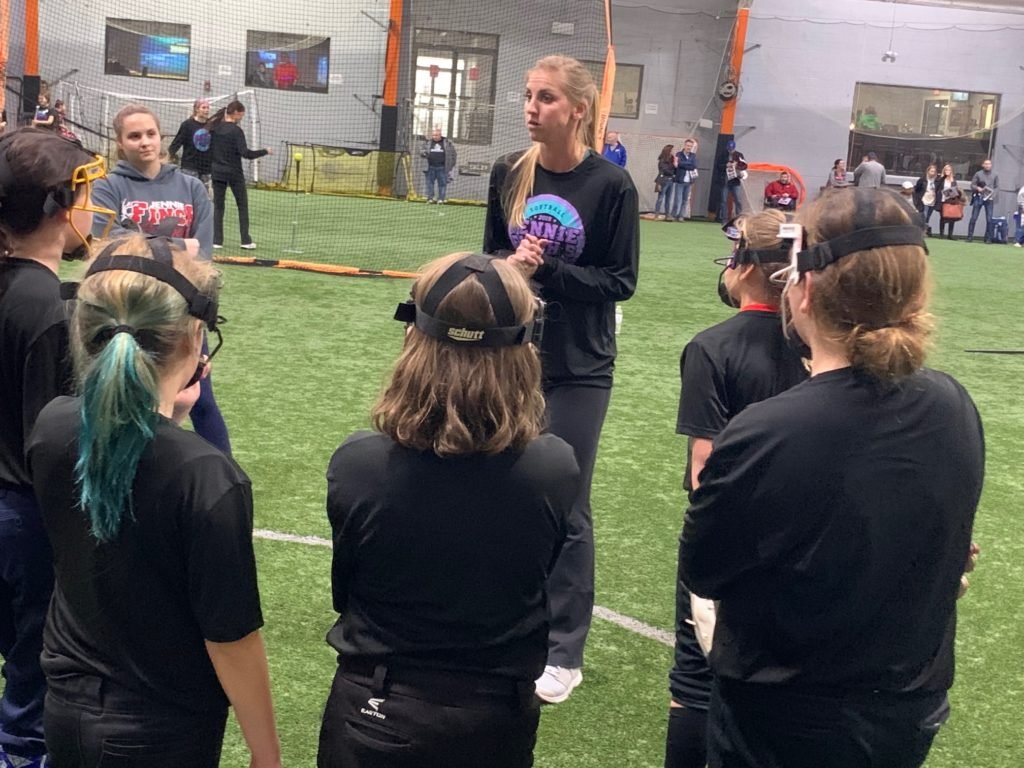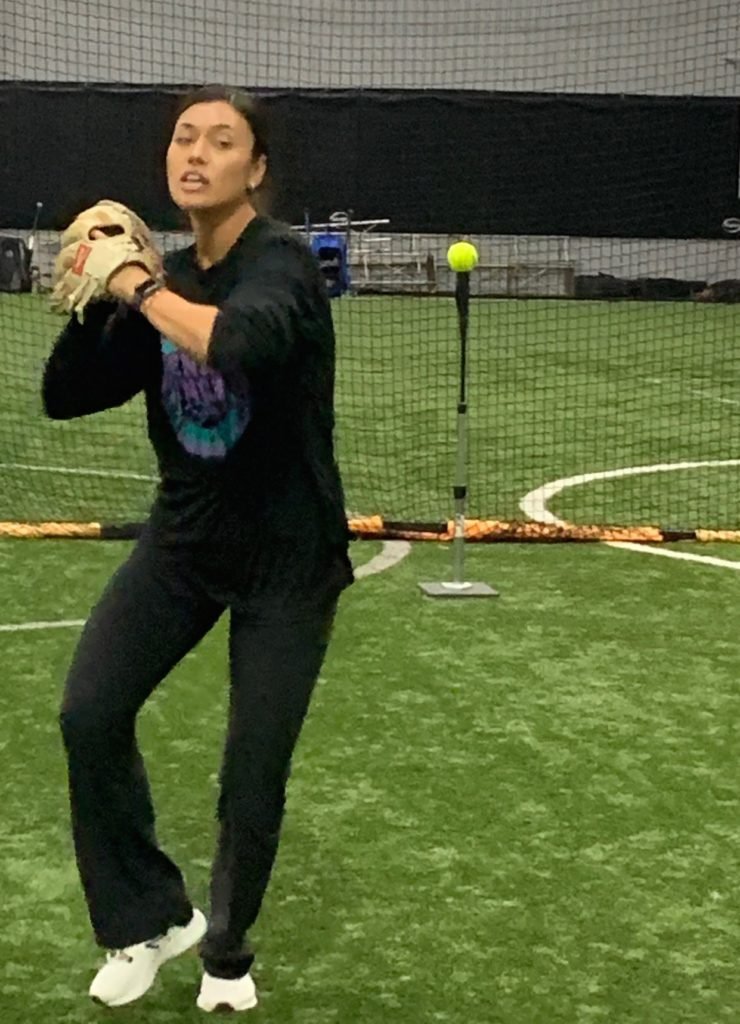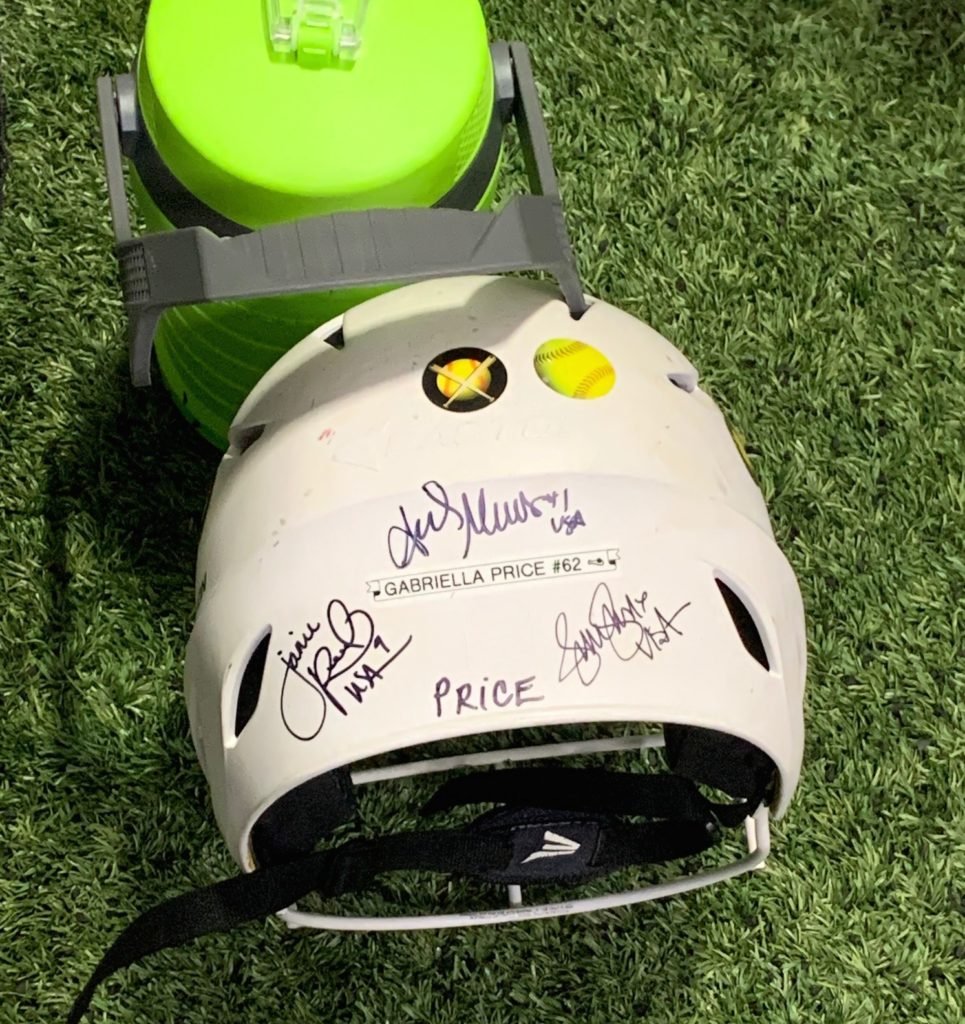Janie Takeda-Reed and Aubree Munro-Watson will be doing something in July no softball player in the world has done since 2008.
Takeda-Reed and Munro-Watson will fly to Tokyo, Japan with their U.S. National Team teammates to take on the rest of the world in the 2020 Summer Olympic Games. Both U.S. softball stars joined Jennie Finch and Doug Finch as instructors at the Jennie Finch Extravaganza, held last week at Next Level Arena in Flemington.
Diamond Nation.com sat down with Takeda-Reed and Munro-Watson after Saturday’s clinic to talk about the approaching Olympic Games. The fact that we are talking about softball and the Olympic Games in the same breath has a lot to do with the efforts of many, including Jennie Finch, to push for the return of the sport that was dropped by the International Olympic Committee after two negative votes in 2005.
The last time the Olympic Games included the sport of softball was 2008. Japan defeated the United States in the championship game that year. The United States had won the first three Olympic gold medals – 1996, ’00 and ’04 – in softball. Finch was the star pitcher on the 2004 gold medal team and the 2008 silver medal U.S. squad.
The International Olympic Committee dealt softball and baseball an Olympic deathblow, by a single vote, on Feb. 9, 2005. The committee voted 52-52 with one abstention to remove the sport from the Games. Finch and many others in the game have since fought for softball’s reinstatement to the Games. That positive vote finally occurred in 2016.

“It’s a huge relief,” said Jennie Finch, who was spearheading her 11th Annual Finch’s Extravaganza at Diamond Nation. “I’m so excited. I just think of all those little girls who can now dream again about playing on the biggest stage. Softball is back where it belongs.”
Finch has had a huge influence on the growth of the sport and certainly has been front-and-center, since her days as an Olympic gold medalist, in promoting the sport she loves and making it shine at the grassroots level nationally and internationally.
“You do what you can to showcase and spread the game,” said Finch, “and there are few better places to see the game thrive after its reinstatement than Tokyo. Japan has such a great love for the sport.”
Takeda-Reed and Munro-Watson are part of the next generation of softball stars to help steer the U.S. National Team to the past two World Championship victories in 2016 and ‘18. The 20-something stars are fortified by 2008 Olympians Monica Abbott and Cat Osterman, who bring an important veteran presence to the squad.

Takeda-Reed and Munro-Watson, now 26, were just 9 years old in 2004 and growing up in California when the U.S. team won its last Olympic gold medal in Athens, Greece. That team was referred to as “The Real Dream Team.”
“I remember all of it,” Munro-Watson said of the 2004 Games. “I was ecstatic. I had my mom wake me up in the middle of the night so I can watch the games live. I think I made it through only three innings most times but my heart was in it.”
Takeda-Reed said she saw the U.S. team play in-person during the team’s pre-Olympics tour stop at Cal-State Fullerton. “Unlike Aubree, It wasn’t my dream to play in the Olympics at that point. Only because I didn’t think I would ever be good enough to get to that point.”

That said, Takeda Reed admits she and her sister began practicing their autographs after seeing the 2004 team play, putting the letters U.S.A. after their names. “It’s pretty cool now when I actually get to write U.S.A. after my name.”

Both players watched the live stream of the Olympic committee’s announcement in 2016 when softball and baseball were reinstated after being left out of the 2012 and ‘16 Games.
“I was in an airport watching the announcement and I was like, ‘Oh my, gosh!” said Munro-Watson. “It was my first year on the national team. I was thinking I could be part of this. Those four years have flown by and here we are.”
Takeda-Reed said, “I watched the live stream, too. And I just thought about how much our sport had been through, getting into the Games for the first time in 1996 then getting knocked out and now we were back again.”
The U.S. National Team has an arduous schedule ahead in preparation for the Tokyo Games.
“We have a week of training this month (December), which is great for us,” says Munro-Watson. “It’ll be a great opportunity to get together as a team.” Then it’s some down time before the team’s six-month pre-Olympic tour begins.
“We begin the tour at the end of January,” said Takeda-Reed. “It’s about 180 days, 150 of which we are together. We’ll be playing college teams all over the country. We get five R&R days a month.”
Both players know the drill as far as the demands of playing for the national team and each has had incredible success at both the collegiate and national team level. Takeda-Reed batted .360 with a HR and 6 RBI in the 2018 World Championships, while Munro-Watson batted .389 with 3 HR and 8 RBI.
Takeda-Reed, a 5-7 lefty-hitting outfielder was a First Team All-American in 2013 at Oregon and a Second Team All-American in 2014 and ‘15. Munro-Watson, a 5-10 catcher, played at the University of Florida where her 2014 and ‘15 teams won back-to-back Women’s College World Series championships. Both were members of the gold medal winning U.S. team at the 2019 Pan-American Games.
NOTES: The U.S. National Team posted an overall record during its four Olympic appearances, including a dominant 9-0 record at the Athens Games in 2004 that so enthralled the 9 year-olds, Munro-Watson and Takeda-Reed. … Finch’s 2001 University of Arizona team won the Women’s College World Series. She is recognized as the most dominant pitcher in women’s softball history. … Takeda-Reed is a member of the NCAA’s exclusive 300-hit, 200-run, 100-stolen base club. … Team U.S.A.’s 15-member team (and three replacement players) is under the direction of head coach Ken Eriksen, who is also the University of South Florida head coach. … Assistant coach Laura Berg, also a frequent clinician with Finch at Diamond Nation events, starred in all four Olympics in which softball was a competitive sport. Berg is Oregon State’s head coach.
